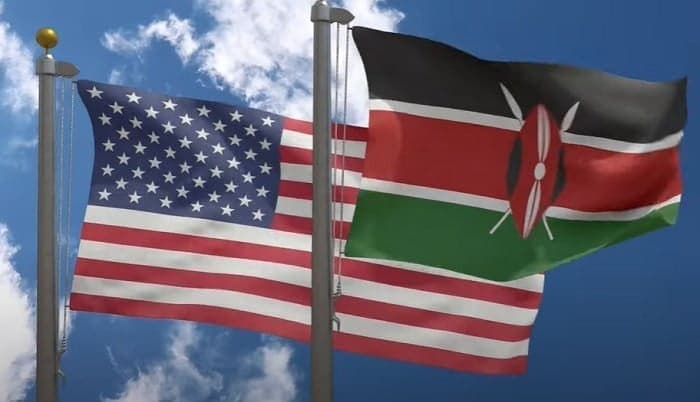We're loading the full news article for you. This includes the article content, images, author information, and related articles.
Beyond sending over a trillion shillings home, Kenyan diaspora organizations in the United States are creating powerful networks for welfare, investment, and cultural preservation, becoming a critical, yet complex, force for national development.

The Kenyan diaspora in the United States, a community of approximately 164,642 foreign-born individuals as of late 2024, has evolved into a formidable economic force for Kenya. This community's financial contributions have surpassed traditional revenue streams, with remittances hitting a historic high of over KSh 1 trillion by November 2025, according to Prime Cabinet Secretary Musalia Mudavadi. Data from the Central Bank of Kenya (CBK) confirms this trend, showing a significant increase from KSh 651.7 billion in 2024. The United States consistently ranks as the largest source of these inflows, accounting for over half of the total remittances and providing a critical lifeline that stabilizes the Kenyan shilling and supports millions of households.
Behind these staggering numbers lies a complex and vibrant network of diaspora organizations. These groups, ranging from national umbrella bodies to state-specific welfare associations, are the backbone of the community, providing essential social, economic, and cultural support. The Kenyan government, through its embassy in Washington D.C., officially recognizes a growing list of these associations, urging them to register to streamline engagement. These organizations serve multiple functions: providing welfare support during emergencies, preserving Kenyan culture, fostering professional networks, and, crucially, pooling capital for investment back home.
This organizational landscape is diverse, encompassing various types of groups:
A significant pillar of the diaspora's economic strategy is the proliferation of Savings and Credit Co-operative Organizations (SACCOs). These financial entities allow Kenyans abroad to pool resources for investment, access affordable credit, and undertake development projects in Kenya. Prominent examples include the Kenya USA Diaspora Sacco (KUDS) and the Kenya North America Diaspora Sacco (KNAD), which was founded by Kenyan women to empower members financially. KUDS, through its investment arm, offers members opportunities to purchase land in vetted projects like the "Kisaju Diaspora Meadows" in Kajiado County, providing a secure channel for property ownership. These SACCOs represent a structured attempt to overcome the challenges many in the diaspora face, such as a lack of credible partners and high-interest rates from traditional banks.
Among the most influential groups is Kenyan Women in the United States (KWITU), a non-governmental organization established in 2015. With a mission to connect, empower, and support Kenyan women, KWITU has launched impactful initiatives. Its Sisi Kwa Sisi (SKS) Benevolent Fund provides financial aid to members during bereavement, a mandatory program for all members that strengthens their social safety net. Furthermore, the KWITU Safe Haven project offers confidential support and services to victims of domestic violence, addressing a critical need within the community.
Recognizing the diaspora's immense potential, the Kenyan government has intensified its engagement efforts. The establishment of the State Department for Diaspora Affairs in 2022 and the launch of the Kenya Diaspora Policy 2024 signal a strategic shift towards mainstreaming the diaspora in national development. The policy aims to protect diaspora rights, facilitate investments, and strengthen partnerships. The government has also launched initiatives like the Jamhuri Diaspora Awards to celebrate the achievements of Kenyans abroad. However, critics point to a gap between policy and practice, citing bureaucratic inefficiencies and a need for more concrete solutions to challenges like investment barriers and full political participation.
Despite their successes, these organizations face significant hurdles. SACCOs grapple with regulatory barriers in directly handling international remittances and require greater technological infrastructure. Internally, diaspora groups can suffer from a lack of unity and leadership struggles, which can hamper their effectiveness. For individual Kenyans, challenges range from navigating the complex U.S. immigration system to cultural adjustment and underemployment. For Kenya, the key challenge remains translating the diaspora's immense financial and intellectual capital into sustainable development. This requires moving beyond celebrating remittance figures to creating robust, transparent, and efficient channels for investment and knowledge transfer, ensuring that the trillion-shilling lifeline from the US builds a stronger, more prosperous nation for all.
Keep the conversation in one place—threads here stay linked to the story and in the forums.
Sign in to start a discussion
Start a conversation about this story and keep it linked here.
Other hot threads
E-sports and Gaming Community in Kenya
Active 9 months ago
The Role of Technology in Modern Agriculture (AgriTech)
Active 9 months ago
Popular Recreational Activities Across Counties
Active 9 months ago
Investing in Youth Sports Development Programs
Active 9 months ago